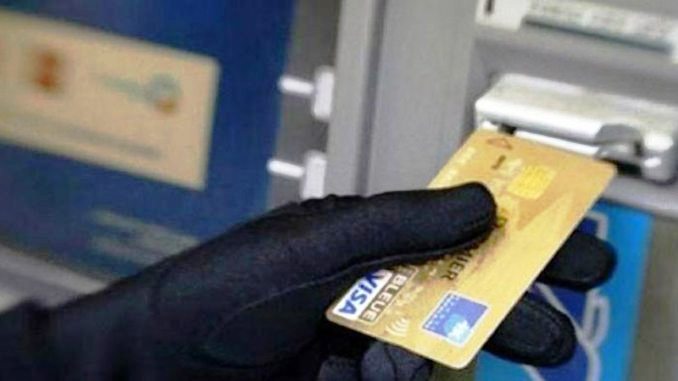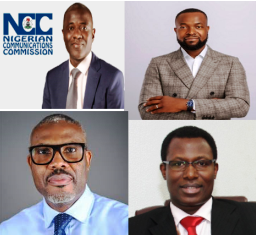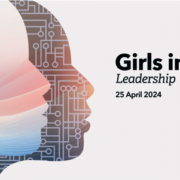MATTERS eRISING with Olusegun Oruame
Are you one of the millions of Nigerians whose money has been locked down for weeks after a failed electronic transaction? Raise your hands to join me in a symbolic protest in hope that the Central Bank of Nigeria (CBN) may notice and ask the bank to release our trapped money.
It is over a week now since a failed transaction to pay for electricity services to Ikeja Electricity Company has left me in limbo, the payment did not go and my account was deducted.
After a call to the bank, I was asked to wait for 24 hours. I have waited for days and it has now been over a week. I have gone to the bank, I have filled a miserable piece of paper and I have counted my days in anger with a desperate sense of hope that will not go cold, waiting and waiting for the bank to return my money.
My case is not unique; In fact, this case is not at all unique. This month alone, I have trapped funds from three failed transactions, unresolved involving three different banks. In all, about N92, 000 is involved in these failed electronic transactions. None has been resolved within the CBN’s stipulated 24 hours.
“The CBN appears to lack the institutional willpower and capacity to defend abused customers. ….Once your money is trapped from an e-payment failure, be ready for a long wait as immediate credit reversal is unlikely to happen.”
What hurts is that I have been left financially emasculated for daring to trust and use Nigeria’s e-payment system. I could have walked over to the electricity company to pay with cash, but I chose to be modern. I also had the option to pay for my flight ticket with cash; again I chose to be modern. Of course, I could have paid for the provisions at the mall with cash, still I used my card and here I am with testimonies of trapped money.
By the CBN’s directive to banks, I am expected to enjoy a speedy and timely reversal of funds within 24 hours when transactions fail, but I am still experiencing delayed refunds. I know of victims who are on queue now not for weeks but for months.
The banks have asked me to blame technology and not the human processes.
One bank’s staff politely told me that glitches relating to connectivity should be blamed, and another spoke of software hitches. What do all these mean to me? I just want my hard earned money back.
I am a bank customer turned to a victim of a banking process not technology that feeds on the lack of will and capacity by the regulator to defend abused citizens.
We are in a country where citizens are historically pawns of service providers and every other person who ordinarily should be accountable to them. Politics makes pawns of hapless citizens who only fill the statistical figures of what it means to have voters necessary to constitute a democracy where elected officials rule as emperors.
In business, customers are pawns to the predatory nature (not tendency) of product or service providers. They offer shoddy services and at a premium and you pay as they dictate.
“That is why many find the recent actions by the Minister of Communications and Digital Economy, Dr Isa Ali Ibrahim Pantami, shocking. In a country where customers are already used to having service providers behave like emperors, how does a minister direct a regulator to get telecom service providers to reduce data charges?”
Have you seen how fire ants swarm their victims, and how they consume their prey in a fiery enclosure from which there is no escape? Electricity companies bill you as they wish; the law does not forbid estimated billings. In fact, it encourages an irrational exploitation of the citizens and encourages a systematic abuse of customers by ensuring an absolute acceptance of shoddy services as a way of life. If you fail to pay a wicked and inflated bill, you get damned and you are disconnected. While in darkness, you still get billed and this time it is hyper-inflated even though you have been disconnected all that time. The electricity regulatory authority offers you a window to complain but the processes as are all processes for citizens’ engagement and can be so thorny that you will choose to bribe the system to have sanity rather than fight and be eaten.
Now in the financial sector, the banks decide how you play and when you are played. The CBN appears to lack the institutional willpower and capacity to defend abused customers. You may have a testimony of rip-offs over failed transactions when you use the Automated Teller Machines (ATM), Point of Sale Terminals (PoS) or any of those mobile apps, web-based electronic money transfers and payments, but you are unlikely to get succor for your pains over those tons of lapses and abuses in Nigeria’s electronic money landscape where banks and their partners hold sway. Once your money is trapped from an e-payment failure, be ready for a long wait as immediate credit reversal is unlikely to happen.
That is why many find the recent actions by the Minister of Communications and Digital Economy, Dr Isa Ali Ibrahim Pantami, shocking. In a country where customers are already used to having service providers behave like emperors, how does a minister direct a regulator to get telecom service providers to reduce data charges presumably too costly and also address the issue of data depletion (data theft)? Not in Nigeria!
“While telecom operators mourn in displeasure [over ministerial directives] and subscribers are rejoicing, the banks have remained as good as the DISCOs in inflicting pains on consumers.”
The ministerial norm is to sit with service providers, hear their litany of woes, praise them for their willingness to operate in an under-infrastructure economy, dismiss customers’ complaints as lacking in understanding of the dynamics of doing business in Nigeria; and then go ahead to connive with operators to further muzzle customers.
It appears the man at the Ministry of Communications and Digital Economy will have none of that. Series of directives from the ministry to the Nigerian Communication Commission (NCC) aiming to address abuses in the sector and bring respite to subscribers have incited the anger of operators and generated controversies.
While telecom operators mourn in displeasure and subscribers are rejoicing, the banks have remained as good as the DISCOs in inflicting pains on consumers. Failed transactions are on the rise and as this Yuletide season stare us in the face, the failure rate will escalate, so too the frustration of customers.
The ministry of Aviation recently got the Turkish Airlines to treat its Nigerian passengers with decency and that is after years of abuses. Did the ministry take a cue from the Ministry of Communications and Digital Economy? How do we get the appropriate ministry to listen to consumers’ extortion in the power sector and end the decades of robbery? We had moved into an office space three years back and the property had no prepaid metre. Our monthly estimated bill was N23, 000 when we initially moved in and it gradually increased to become N75, 000.
We added nothing, no new electricity consuming equipment but the bills kept mounting. No formal appeals, entrustments or protests worked.
Severally in anger, we asked them to come cut the power as it was excruciatingly tough to sustain an electricity bill of almost one million naira a year for a small media organisation. The most ludicrous was always the December and April bills – two clear months when the office is practically closed as our holiday or vacation period for all staff. In those months, Ikeja Electricity Company would bring a bill of N73, 000 to an office premises in darkness. Finally, prepaid metre came one sunny Saturday morning ostensibly to end our monthly ritual of verbal protests at their Oregun Office. We have known peace ever since then and we have never paid beyond N17, 000 in a month.
“ATM, POS, web or mobile app-enabled payments are all part of the cashless policy of government to drive mass financial including. But as is typical of how government operates since the British, policies do not always focus on the interests of those at the bottom part of implementation.”
The Nigerian political machine was designed by the British to prey on citizens since independence and even as Nigeria experimented with a government controlled economy and a lassie faire that allows for liberalisation and deregulation of economic activities. The predatory orientation has remained unchanged among elected officials, the military juntas before them and so-called business tycoons in corporate Nigeria.
ATM, POS, web or mobile app-enabled payments are all part of the cashless policy of government to drive mass financial including. But as is typical of how government operates since the British, policies do not always focus on the interests of those at the bottom part of implementation. Policies majorly focus on advancing the interest of those at the top end of chain so the mass of people are no more than perpetual guinea pigs in the drive for high profits. Will the increasing failure of electronic payment channels or even untoward charges cause a total distrust of the system as to cause a deceleration in their use? Not likely, there is no strong and sustainable theme of oppressed citizens in Nigeria resisting and triumphing over oppressive service or product terms. We have become amenable to accepting abuses and in that classic afrobeat of Fela, we are sorry outcome of what it is to become ‘Original Sufferheads.’ Indeed! Our tragedy is beyond mere failure of electronic channels.































